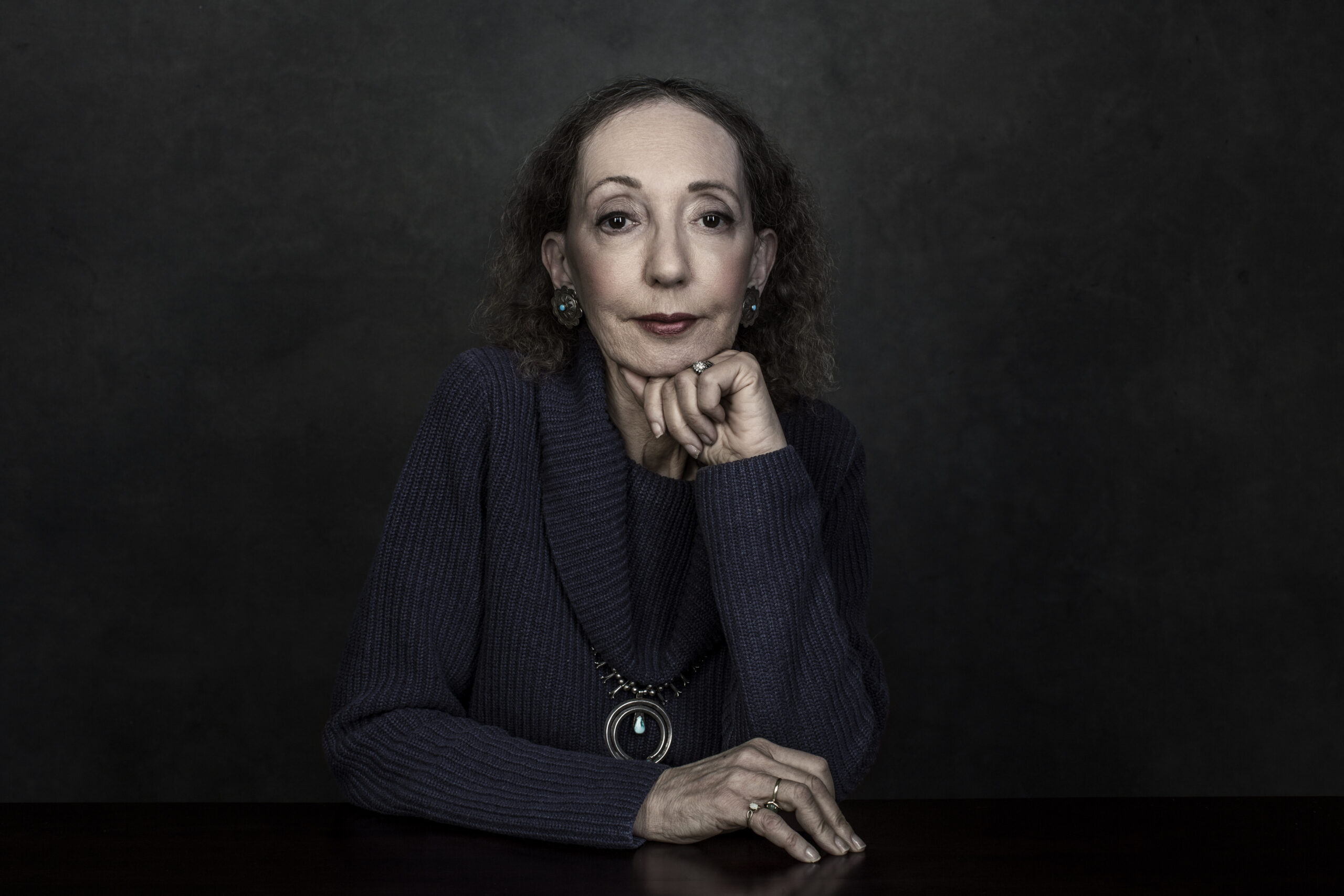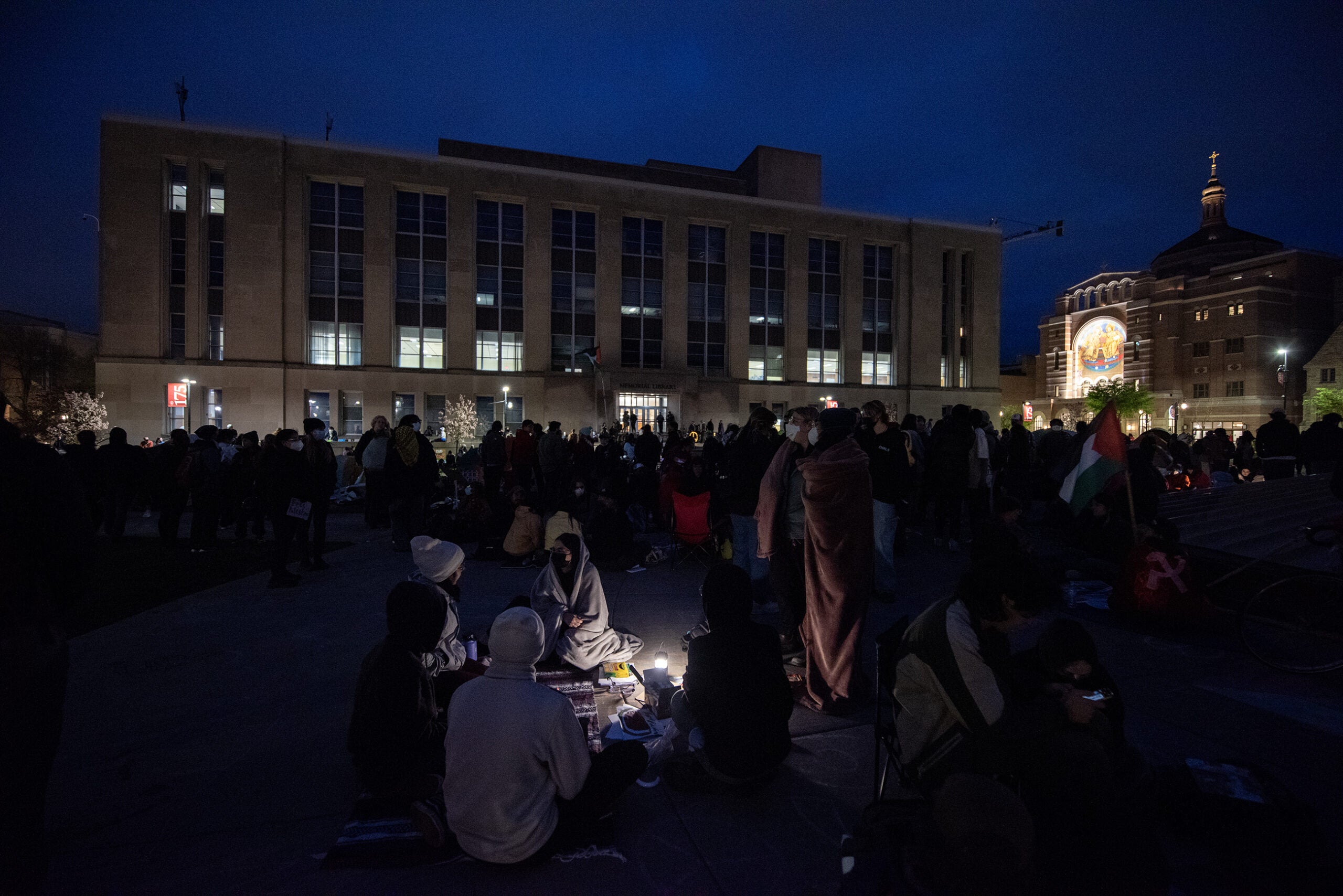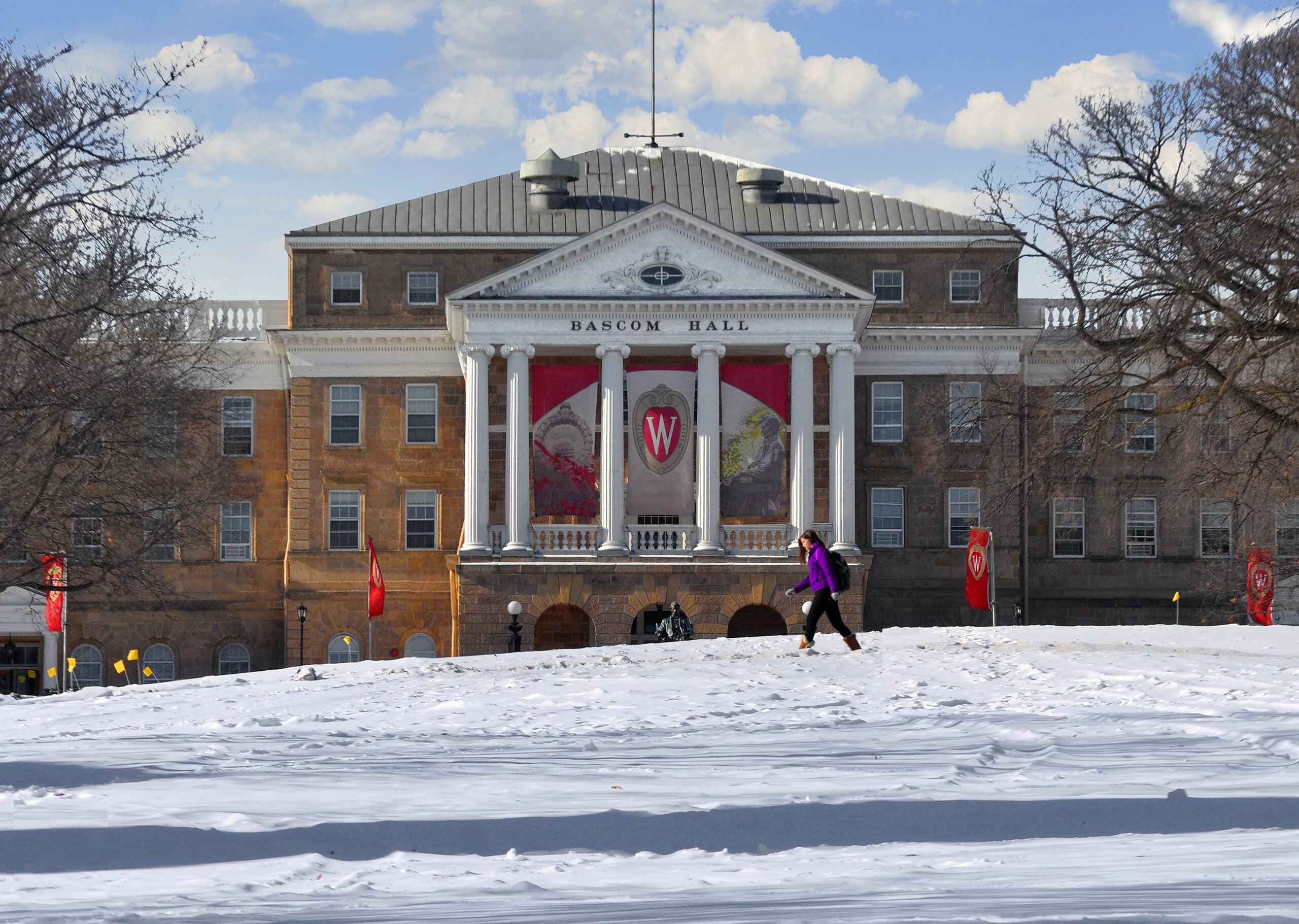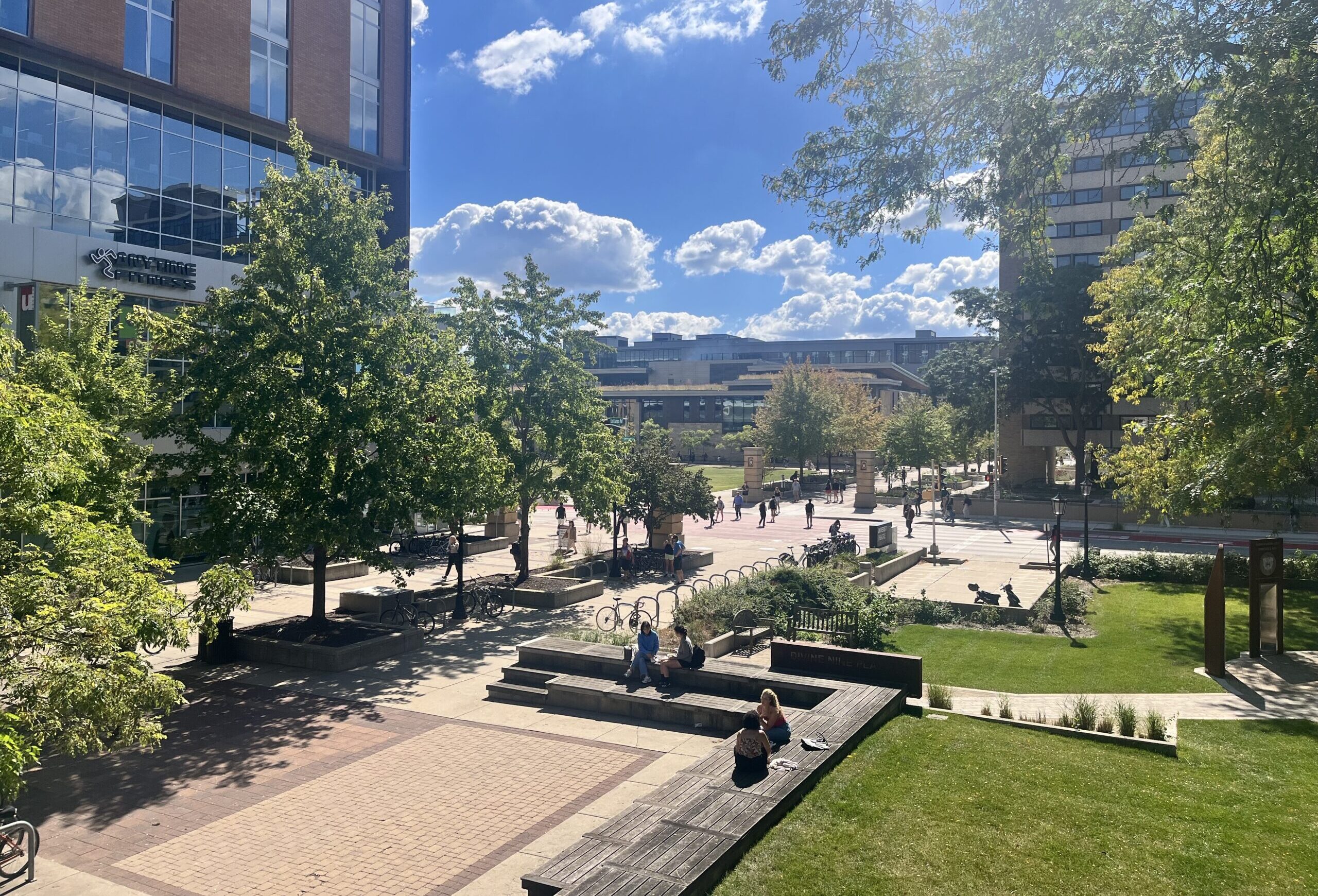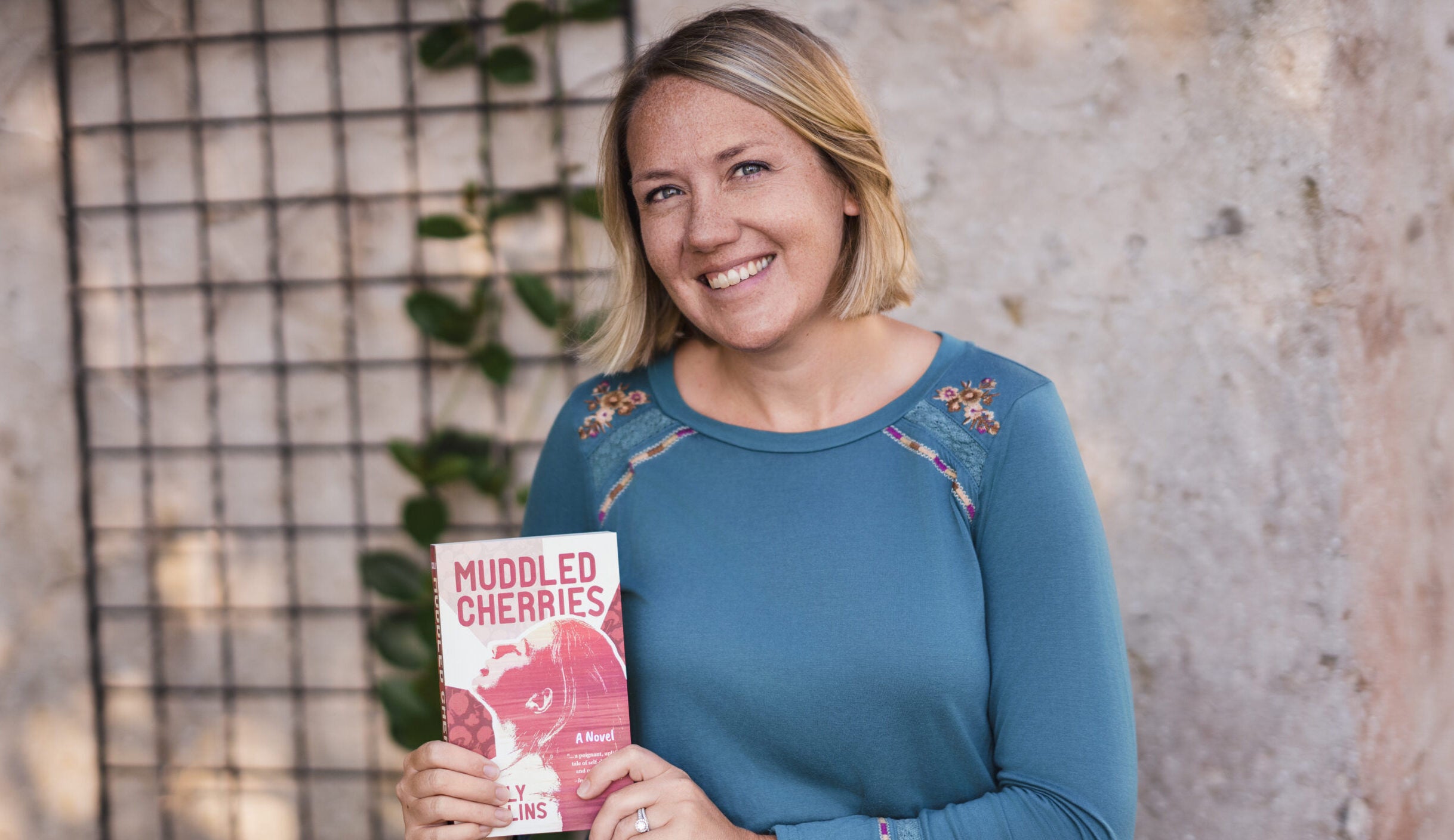Acclaimed author Joyce Carol Oates loved much of her time as a student at the University of Wisconsin-Madison. She loved the city, the water and the student union.
But she has written that her campus years in Wisconsin were in some ways a “lost time” for her. She found much of the older, male-dominated faculty — and their old-school teaching methods — to be dull. And her time featured a turning point that could have led her down a path away from her future accolades, which include a National Book Award, the National Humanities Medal and several Pulitzer Prize nominations.
In her 2015 memoir, “The Lost Landscape: A Writer’s Coming of Age,” Oates describes her disheartening oral exam for her master’s degree, where she was ultimately turned away from continuing on into UW-Madison’s English Ph.D. program. But she says that, had she been encouraged to continue her graduate work, she might never have become the successful writer she is today.
Stay informed on the latest news
Sign up for WPR’s email newsletter.
“More than once in my life there has been a fortunate failure at just the right time,” she said recently on WPR’s “Wisconsin Today.” “So, it cut off a road I might have been following that would not have been good.”
In the decades after she got her master’s degree in 1961, Oates went on to become one of the most prolific and eclectic voices in American literature. On “Wisconsin Today,” she discussed her time in Madison, her new literary horror book called “Butcher” and what she has planned next.
The following interview has been edited for length and clarity.
Rob Ferrett: What was your experience at UW-Madison like?
Joyce Carol Oates: I came from Syracuse University, where the professors were younger. They were more focused on new literature and American literature. When I came to Wisconsin, most of the faculty was older. They were from Harvard, and they were teaching in a way that is now not fashionable. They just lectured. So when I went to Wisconsin, I was sort of thrown back into an older mode of pedagogy. I remember one professor just sat and read from his own book.
It was very dull. I did have one wonderful professor, Helen White. She taught medieval literature, and I think she was able to make it come more alive. I have very good memories of Helen White.
RF: There’s a building not far from where I’m sitting named after her now. Apart from Helen White, these professors were mostly older men. Was sexism a part of that negative experience?
JCO: I think it was. If I had to do it all over again, I probably would be able to navigate it a little better. I may have been naive. I had come from Syracuse, where I was valedictorian. They were respectful of me and of other women students, as well. But then when I came to Wisconsin, it was more of an older patriarchy. I didn’t really know how to deal with that.
It was just not the right place for me. To quote Bob Dylan: “Sure was glad to get out of there alive.”
RF : Your new novel “Butcher” is about a 19th century doctor who performs horrific experimental procedures on women at an asylum where he’s the medical director. Why did you tackle this subject matter?
JCO: The history of medical science is very fascinating. It throws a good deal of light on how people view one another today, especially in a patriarchal culture. How physicians and surgeons viewed women, and how mental illness in women was often treated with hysterectomies and other surgeries that related to a person being a woman.
RF: Do you feel like those patriarchal attitudes in medicine lingered on after the 19th century?
JCO: That’s very true. As far back as Aristotle, it was considered that women were second class citizens, that they were subhuman compared to men, and that if a woman was upset about something — it could be her role in life, she might not want to get married or have children — it was considered hysteria. Men could not be hysterical, because hysteria derived from the uterus. The female reproductive organs were often removed.
RF: Is there a connection between the committee saying you don’t get to move on with a Ph.D. program and some themes in your new book? Perhaps in how older men who are set in their ways decide a woman’s future?
JCO: That is very interesting. I remember that so well, but it was in a way a blessing. I didn’t have any intention of going for a Ph.D. Now, if they had said to me, “Oh, Joyce, you are just what we want. You’re going to be like Helen White. You have to get a Ph.D., and we’ll give you a fellowship,” that would have maybe ruined my life. I would have toiled away in the library doing this historical research and talking about sources. My life would have been sabotaged.
RF: You’re well into your 80s now. What has kept you motivated to keep on writing and creating?
JCO: It’s really just the opposite. I don’t have enough time to do all the things that I want to do. I have many, many outlines for novels and stories, all sorts of notes. I have too many ideas, really.
RF: I know you have a number of projects in mind. Is there one that’s at the front of the pack that might emerge as your next novel?
JCO: My next novel is an experiment in a “whodunnit.” I’ve never written in that genre. It’s a mystery. There’s a dismembered body of a person. We learn about who he is, and we learn about the community. We move through an investigation with a real detective, a real police investigation. I had a lot of fun writing a police procedural. I love to read police procedurals.
Wisconsin Public Radio, © Copyright 2025, Board of Regents of the University of Wisconsin System and Wisconsin Educational Communications Board.
